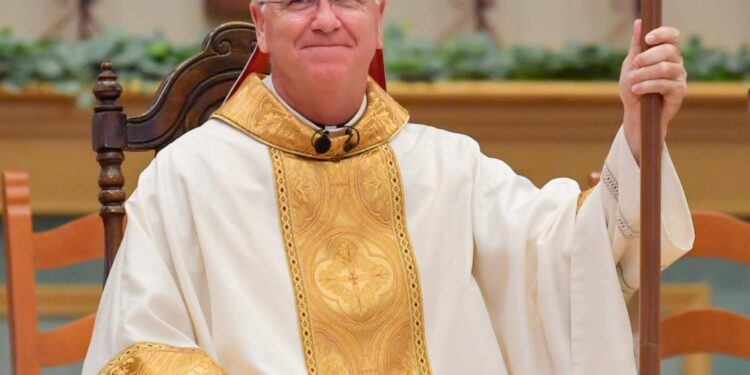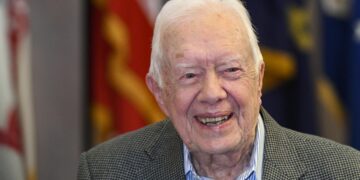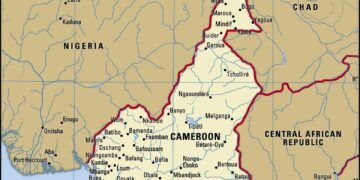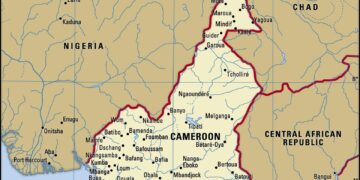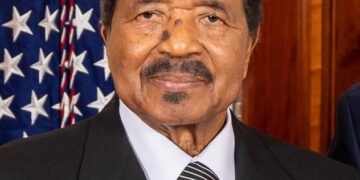In a bold appeal for political accountability, the Catholic Bishops of Cameroon have publicly urged President Paul Biya to refrain from pursuing another term in office. In a statement that underscores growing discontent among the nation’s religious leaders regarding governance and the ongoing socio-political turmoil, the bishops emphasized the need for a renewed commitment to democracy and the welfare of the Cameroonian people. As Biya, who has ruled for over four decades, prepares for the upcoming electoral cycle, this directive from the country’s bishops marks a significant moment in the intersection of faith and politics, igniting discourse on the future of leadership in Cameroon amidst calls for change.
Cameroon Bishops Urge President Biya to Step Aside for National Unity
In a powerful plea for national unity and stability in Cameroon, the nation’s bishops have called on President Paul Biya to refrain from seeking another term in office. They argue that a leadership transition is essential for fostering reconciliation among the different factions within the country. The bishops emphasized the need for dialogue and urged all political stakeholders to prioritize the welfare of the Cameroonian people over personal ambitions. In a statement, they underscored the urgency of addressing pressing social issues, which have been exacerbated by years of political strife.
The bishops highlighted several key areas that require immediate attention to ensure national healing and progress:
- Inclusivity: Advocating for a political environment that welcomes diverse voices and perspectives.
- Peacebuilding: Promoting dialogues that can mend the rifts caused by ongoing conflicts in various regions.
- Economic Recovery: Calling for strategies that address the dire economic conditions faced by many citizens.
They urged that allowing a new leader to emerge could signal a fresh start for the nation, potentially bringing together various groups that have felt marginalized. The appeal from the bishops comes at a critical time, with tensions running high and the need for a unifying approach becoming ever more apparent.
Calls for Political Renewal as Church Leaders Address Economic and Social Challenges
In an unprecedented appeal, the bishops of Cameroon have united in a clarion call to President Paul Biya, urging him to refrain from contesting for another term in the upcoming elections. This bold statement arises from the pressing economic and social challenges that the nation faces, including rising poverty rates and escalating unemployment. The bishops emphasized that renewal in leadership is critical for addressing these issues effectively. By stepping aside, Biya would pave the way for fresh perspectives and innovative approaches to governance that are desperately needed.
The bishops outlined key issues that demand immediate attention, asserting that the welfare of the nation’s citizens should take precedence over political ambition. Among the central themes of their message were:
- Economic Resilience: A commitment to developing sustainable economic strategies that prioritize local industries.
- Social Justice: Ensuring equitable access to resources for all citizens, particularly marginalized communities.
- Political Transparency: Encouraging open dialogue between the government and the populace to foster trust and accountability.
This moral imperative represents not just a plea for leadership change, but a profound recognition of the urgency for transformative action in Cameroon’s socio-political landscape.
Bishops Recommend Dialogue and Inclusion in Response to Escalating National Tensions
The recent statement issued by the bishops of Cameroon calls upon the nation’s leaders, particularly President Paul Biya, to prioritize dialogue and inclusion as critical pathways to address the current national crisis. The bishops emphasize the urgent need for unity and peace, urging stakeholders from various sectors to engage in meaningful conversations aimed at bridging divides. The priests are particularly concerned about the rising tensions that have, over time, exacerbated societal fractures, undermining the country’s stability. They alerted the populace and leadership to the moral responsibility of fostering a culture of engagement that transcends political differences.
Within their message, the bishops outlined several key recommendations for addressing the nation’s challenges:
- Promotion of Open Dialogue: Engaging all political factions and civil society in discussions.
- Addressing Social Injustice: Tackling the root causes of unrest, such as inequality and unemployment.
- Encouraging Participation: Inviting citizens to voice their concerns and contributions to national discourse.
- Fostering Trust: Building relationships between government agencies and local communities.
To illustrate the gravity of the situation, a recent survey showcased public sentiment regarding governance and future leadership preferences:
| Key Issues | Public Concern Level (%) |
|---|---|
| Corruption | 78 |
| Economic Stability | 74 |
| Social Equity | 68 |
| Security | 65 |
This data highlights the pressing issues that need to be addressed if Cameroon is to move towards a more harmonious future, reflecting the bishops’ call for a united approach to governance and conflict resolution.
In Summary
In conclusion, the recent appeal by Cameroon’s bishops to President Paul Biya underscores a significant moment in the nation’s political landscape. As calls for political renewal and accountability intensify, the clerics’ stance reflects broader public sentiment and concerns about governance and the future of democracy in Cameroon. With Biya’s long-standing leadership facing increasing scrutiny, the outcome of this appeal may not only shape the political future of the country but also influence the ongoing discourse surrounding leadership and civic responsibility. As the nation approaches the next electoral cycle, the bishops’ message serves as a reminder of the pressing need for dialogue and reform in Cameroon’s political arena.
